The genetics of autism
Recent articles
Featured articles
From 0 to 60 in 10 years
After a decade of fast-paced discovery, researchers are racing toward bigger datasets, more genes and a deeper understanding of the biology of autism.
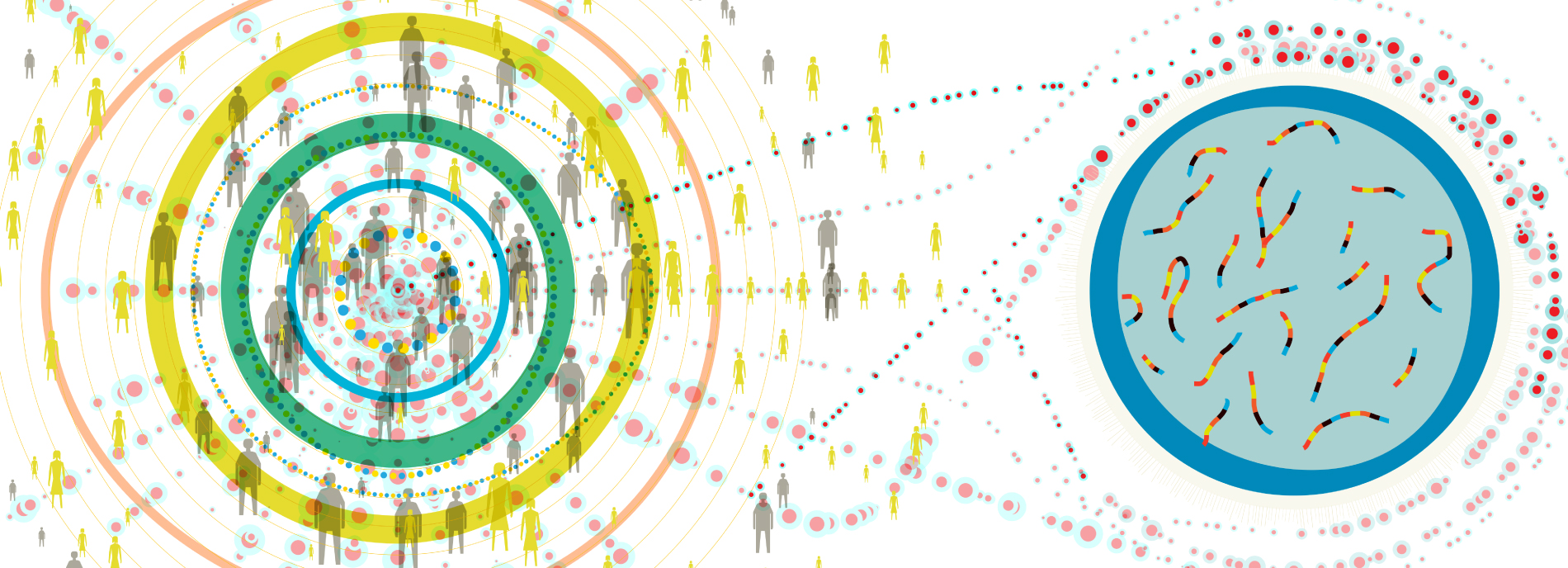
From 0 to 60 in 10 years
After a decade of fast-paced discovery, researchers are racing toward bigger datasets, more genes and a deeper understanding of the biology of autism.
Family groups play key role in advancing autism research
Families need more support from researchers in order for their heroic efforts to be optimally effective.
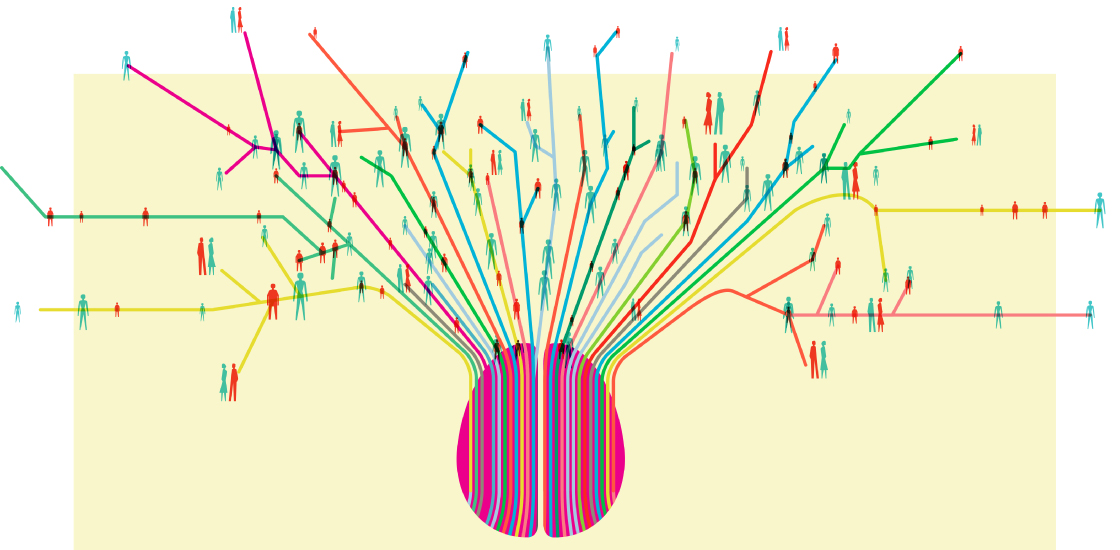
Family groups play key role in advancing autism research
Families need more support from researchers in order for their heroic efforts to be optimally effective.
The interplay of common, rare variation in autism
Autism researchers should ditch the false dichotomy between common inherited variants and much rarer random mutations.
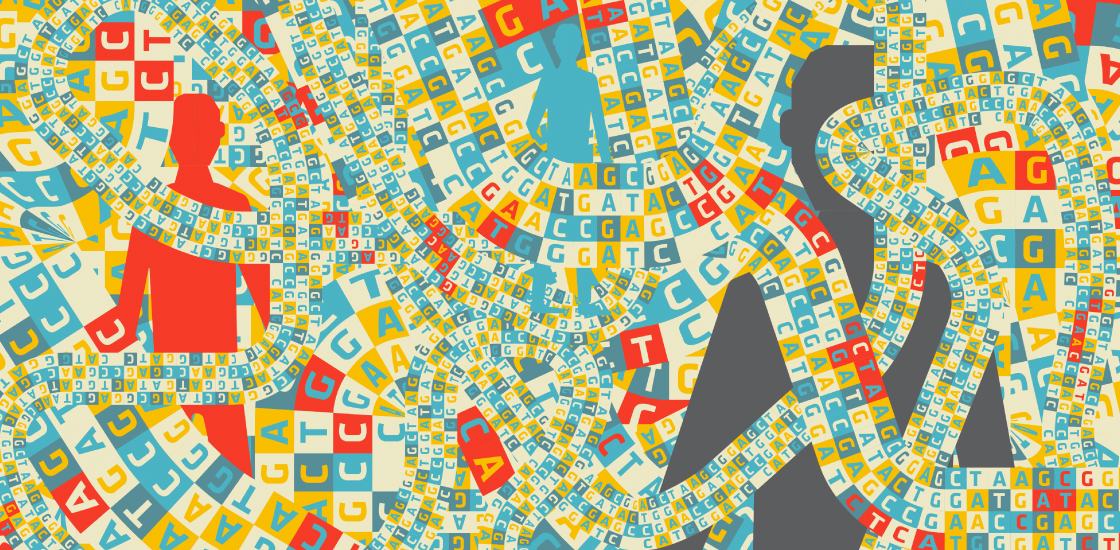
The interplay of common, rare variation in autism
Autism researchers should ditch the false dichotomy between common inherited variants and much rarer random mutations.
Autism genetics, explained
The more scientists dig into DNA, the more intricate its contribution to autism seems to be. Here, we unravel the complex genetics of autism.
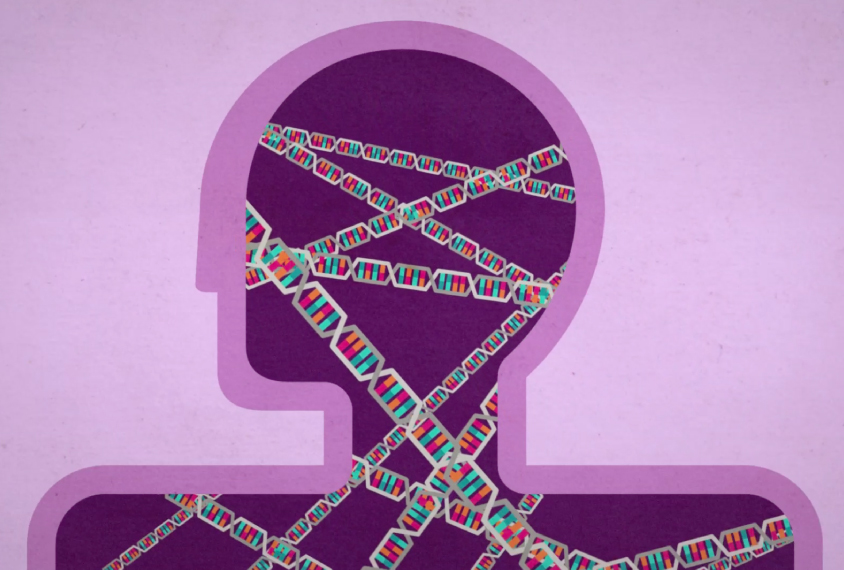
Autism genetics, explained
The more scientists dig into DNA, the more intricate its contribution to autism seems to be. Here, we unravel the complex genetics of autism.
Autism genetics: The movie
The secret to understanding autism lies largely in our DNA.
Autism genetics: The movie
The secret to understanding autism lies largely in our DNA.
In race to crack autism’s code, two contenders shoot ahead
Two candidate genes have risen to the top, and may help scientists understand what autism really is.
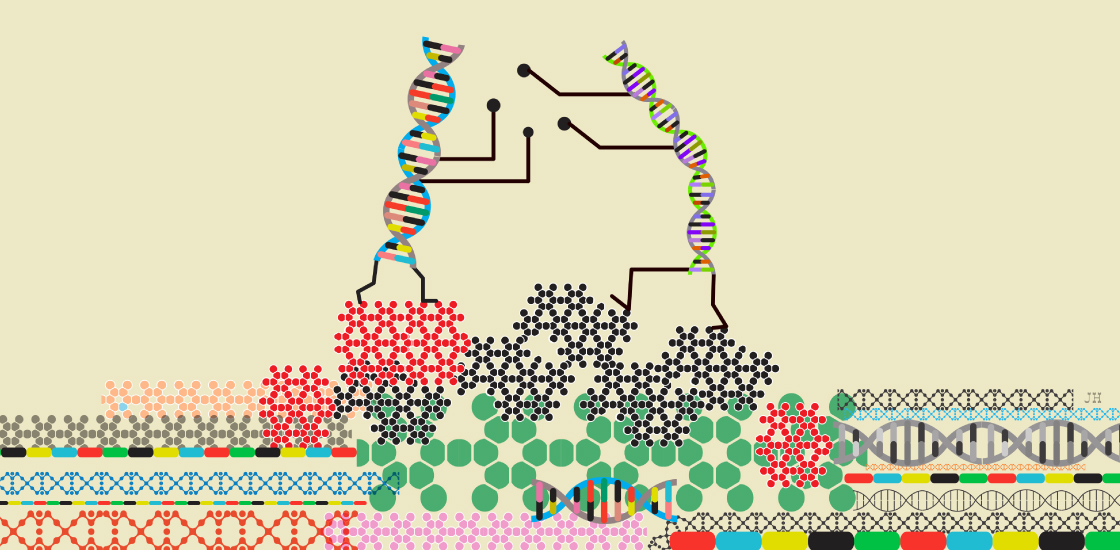
In race to crack autism’s code, two contenders shoot ahead
Two candidate genes have risen to the top, and may help scientists understand what autism really is.
Burning debate: What’s the best way to nab real autism genes?
How to best use a large volume of data to discover new genetic risk factors for autism is a matter of intense debate, particularly in light of historical challenges.
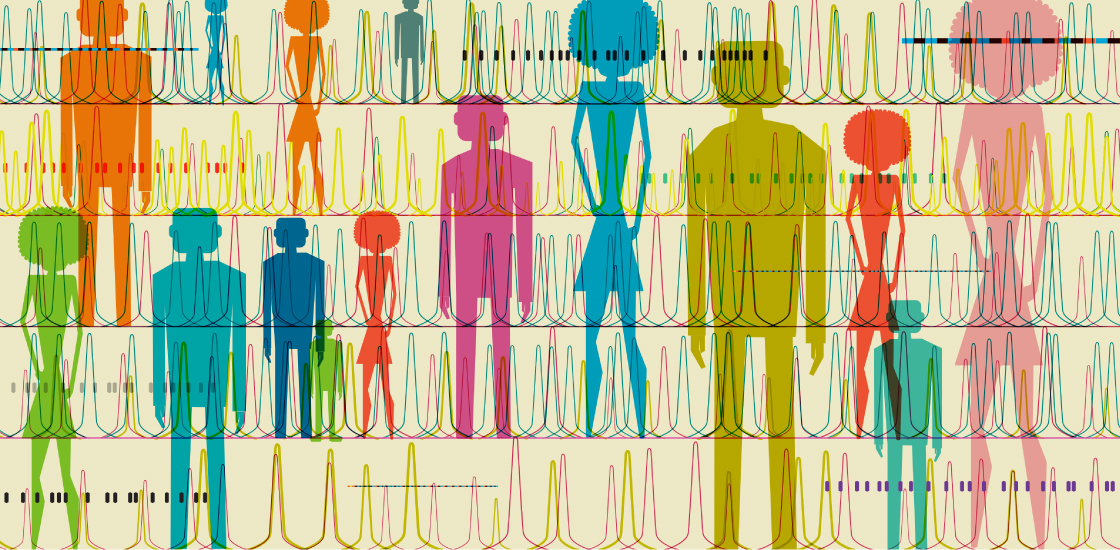
Burning debate: What’s the best way to nab real autism genes?
How to best use a large volume of data to discover new genetic risk factors for autism is a matter of intense debate, particularly in light of historical challenges.
Whole genomes may hold clues to autism, but patience is key
We finally have access to whole-genome sequences from people with autism. But before we can properly interpret these data, we need to know what we're looking for.
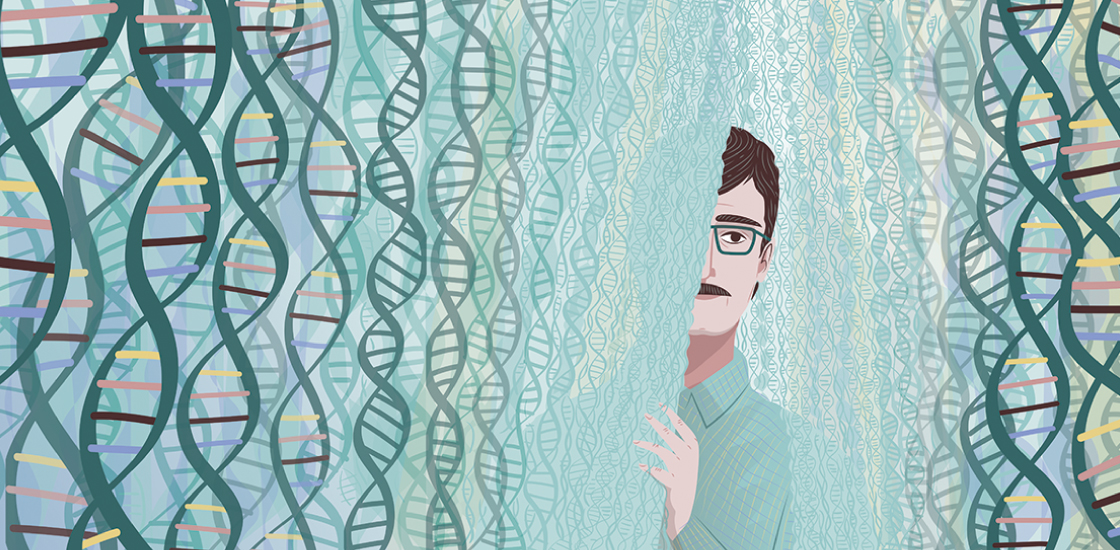
Whole genomes may hold clues to autism, but patience is key
We finally have access to whole-genome sequences from people with autism. But before we can properly interpret these data, we need to know what we're looking for.
Genome’s ‘dark’ side steps into spotlight of autism research
RNA segments that control when and where genes are expressed may be involved in autism.
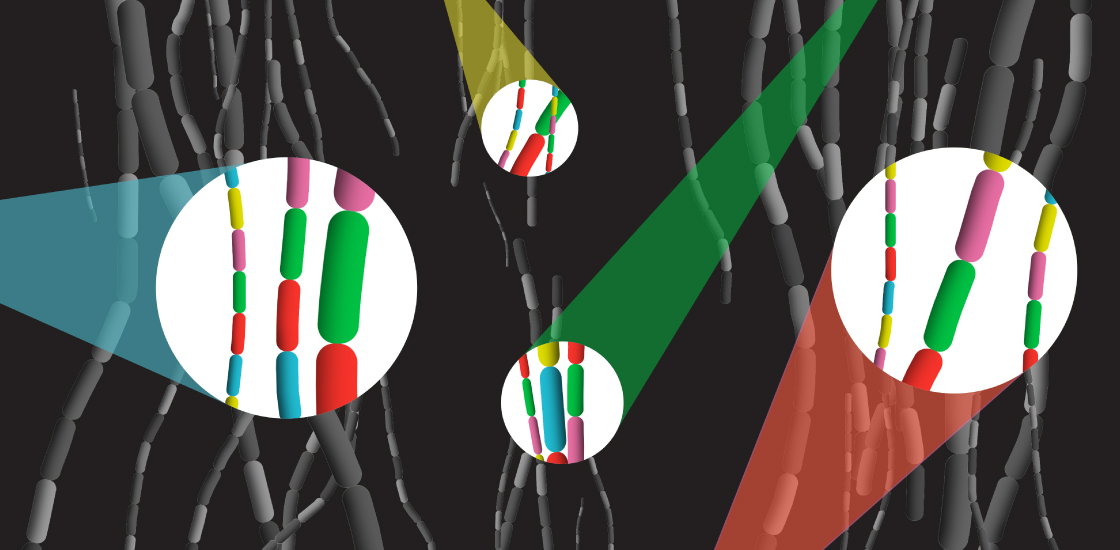
Genome’s ‘dark’ side steps into spotlight of autism research
RNA segments that control when and where genes are expressed may be involved in autism.
Inside Scoop From the Autism Anchors: Special report on genetics
Two scientists describe the critical role families have played in advancing research in autism genetics.
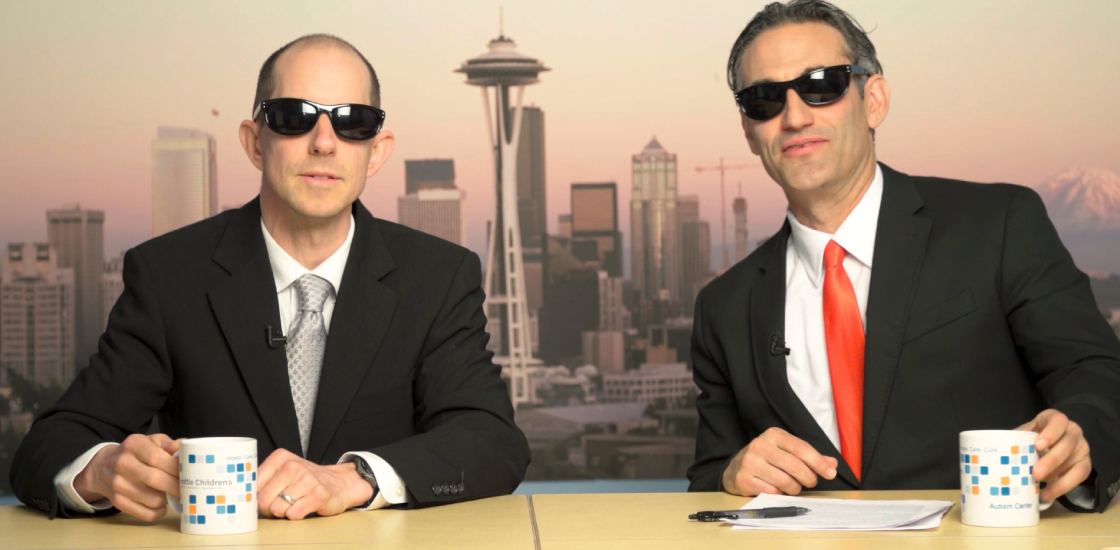
Inside Scoop From the Autism Anchors: Special report on genetics
Two scientists describe the critical role families have played in advancing research in autism genetics.
Why it’s time to spin autism genes into drug screens
Autism researchers’ top priority should be shifting their focus to finding treatments for severe forms of the condition.
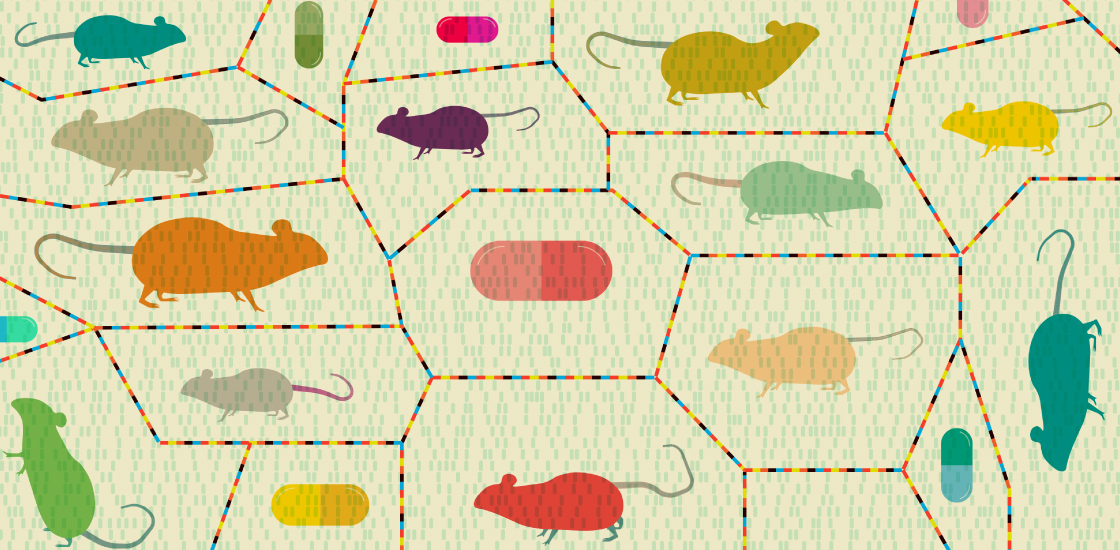
Why it’s time to spin autism genes into drug screens
Autism researchers’ top priority should be shifting their focus to finding treatments for severe forms of the condition.
Genetics for poets
Where do we stand in our understanding of autism genetics — and what major questions remain? A molecular biologist supplies answers in stanzas.
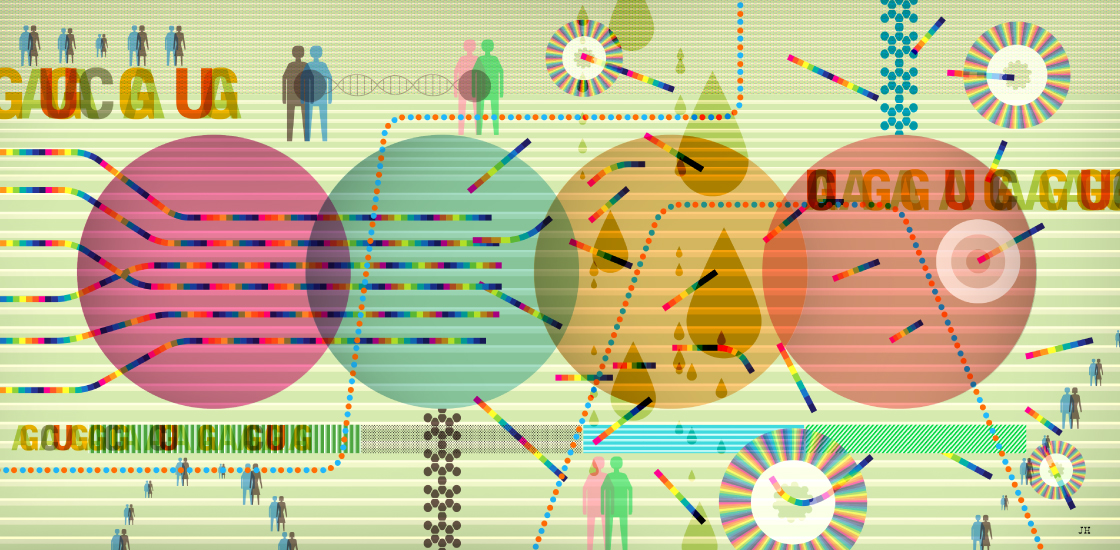
Genetics for poets
Where do we stand in our understanding of autism genetics — and what major questions remain? A molecular biologist supplies answers in stanzas.
Chemical tags reveal interplay of genes, environment in autism
The landscape of chemical modifications on the DNA of people with autism could reveal clues to the condition and lead to treatments.
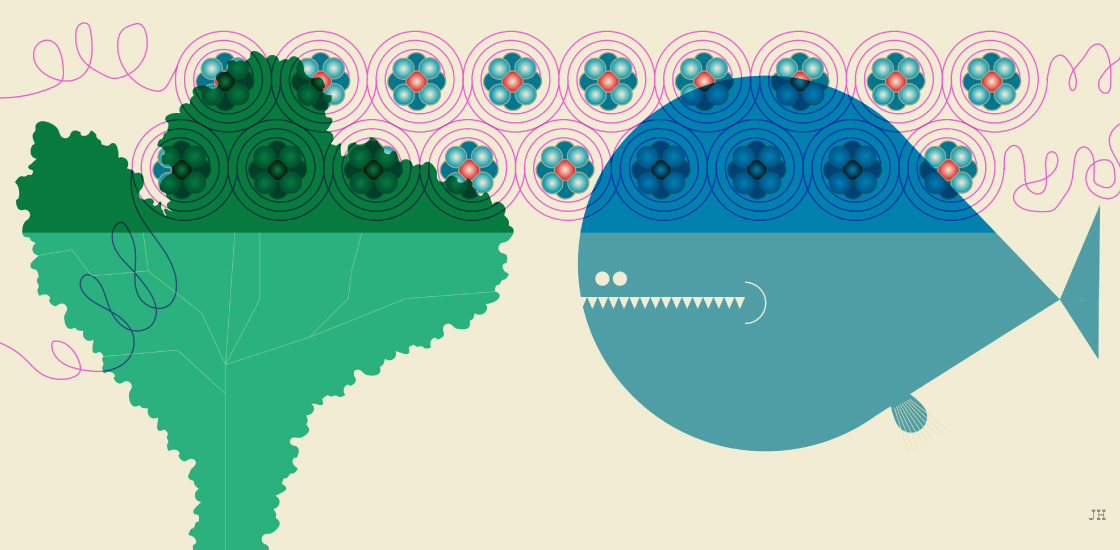
Chemical tags reveal interplay of genes, environment in autism
The landscape of chemical modifications on the DNA of people with autism could reveal clues to the condition and lead to treatments.
New tools strengthen old link between autism, mitochondria
Variants of some mitochondrial genes may contribute to autism — in some cases, by teaming up with genes in the nucleus.
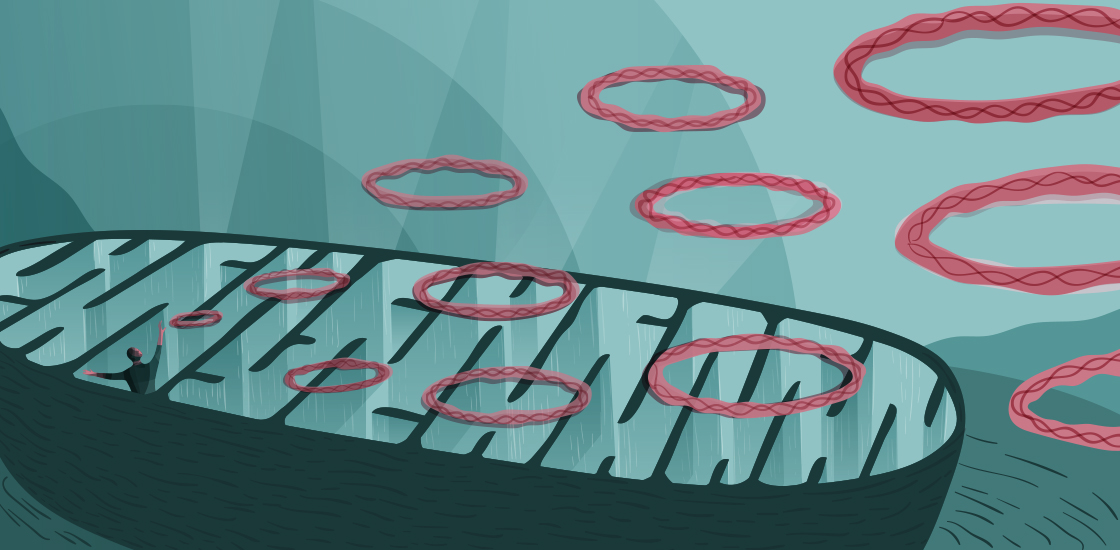
New tools strengthen old link between autism, mitochondria
Variants of some mitochondrial genes may contribute to autism — in some cases, by teaming up with genes in the nucleus.
Spectrum Stories: The role of genetics in autism
We know that genes play a role in the condition; however, finding genes, and then knowing what they do is a challenge.
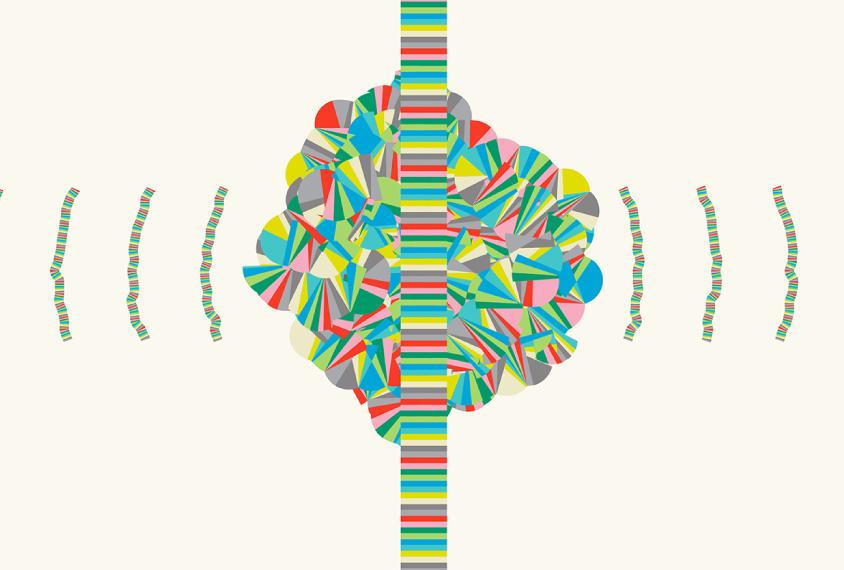
Spectrum Stories: The role of genetics in autism
We know that genes play a role in the condition; however, finding genes, and then knowing what they do is a challenge.
From the archives
What makes a gene an autism candidate? Not everyone agrees
Whether a gene should be considered a ‘novel candidate’ for autism depends not just on whether it’s been linked to the condition before, but on the strength of that link.
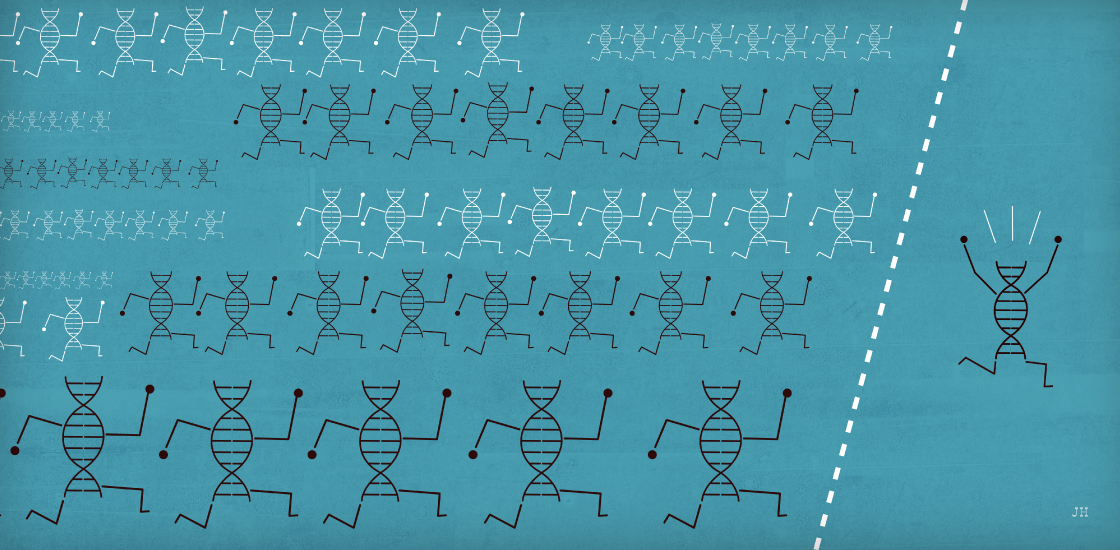
What makes a gene an autism candidate? Not everyone agrees
Whether a gene should be considered a ‘novel candidate’ for autism depends not just on whether it’s been linked to the condition before, but on the strength of that link.
Complex gene interactions in autism offer avenues for treatment
Teasing out how genes interact can offer clues to autism’s causes and point to treatment targets.
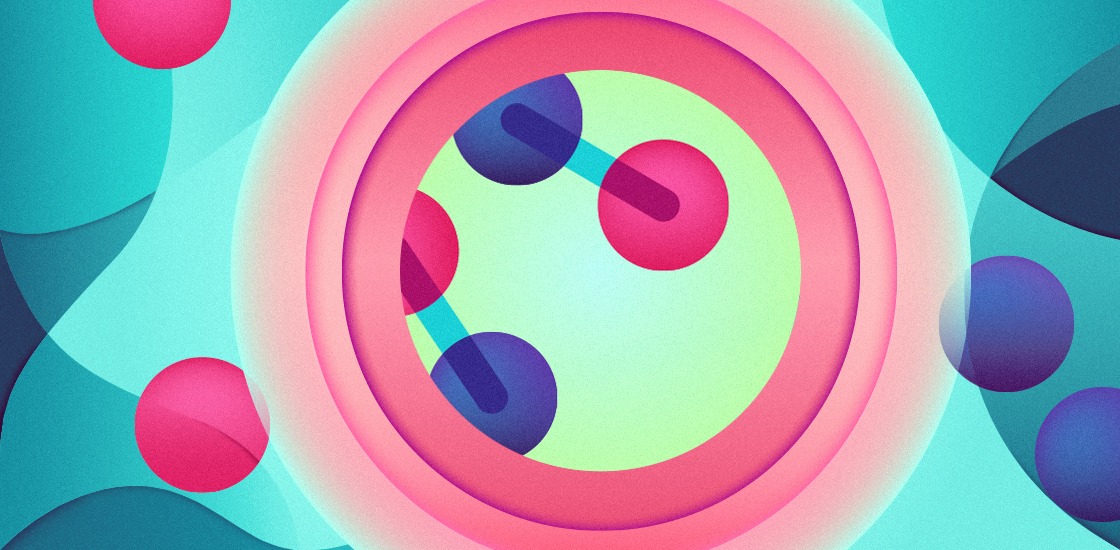
Complex gene interactions in autism offer avenues for treatment
Teasing out how genes interact can offer clues to autism’s causes and point to treatment targets.
Tangled web of proteins holds clues to autism’s complexity
Understanding how mutations in genes linked to autism perturb the different versions of proteins the genes form could reveal new targets for treatments.
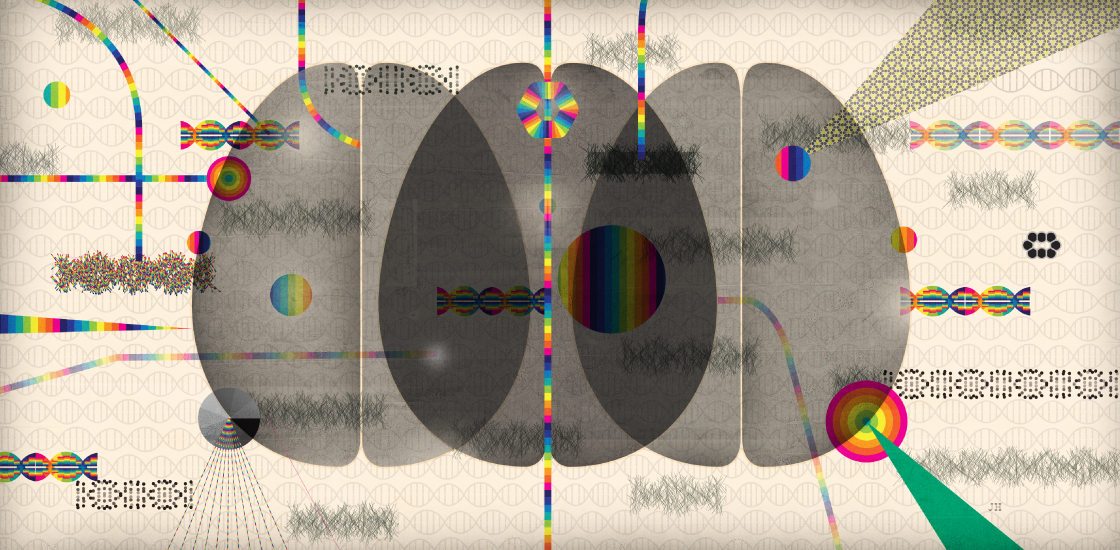
Tangled web of proteins holds clues to autism’s complexity
Understanding how mutations in genes linked to autism perturb the different versions of proteins the genes form could reveal new targets for treatments.
Analyses of gene activity may yield clues to roots of autism
Network analyses of gene expression patterns may point to key molecular pathways that autism alters and suggest new ways of treating the condition.

Analyses of gene activity may yield clues to roots of autism
Network analyses of gene expression patterns may point to key molecular pathways that autism alters and suggest new ways of treating the condition.
Analysis winnows list of mutations tied to autism
As many as one in three rare mutations seen in people with autism may have nothing to do with the condition.

Analysis winnows list of mutations tied to autism
As many as one in three rare mutations seen in people with autism may have nothing to do with the condition.
Genetics first: A fresh take on autism’s diversity
Each child with autism is different from the next. One approach rapidly gaining momentum makes sense of this diversity by grouping children together based on their genetics, then looking for patterns in their symptoms. The long-term aim: personalized treatments for each subtype of autism.

Genetics first: A fresh take on autism’s diversity
Each child with autism is different from the next. One approach rapidly gaining momentum makes sense of this diversity by grouping children together based on their genetics, then looking for patterns in their symptoms. The long-term aim: personalized treatments for each subtype of autism.
The curious connection between autism and cancer
A surprising number of genes associated with autism also have links to cancer. Does that mean cancer drugs can treat autism?
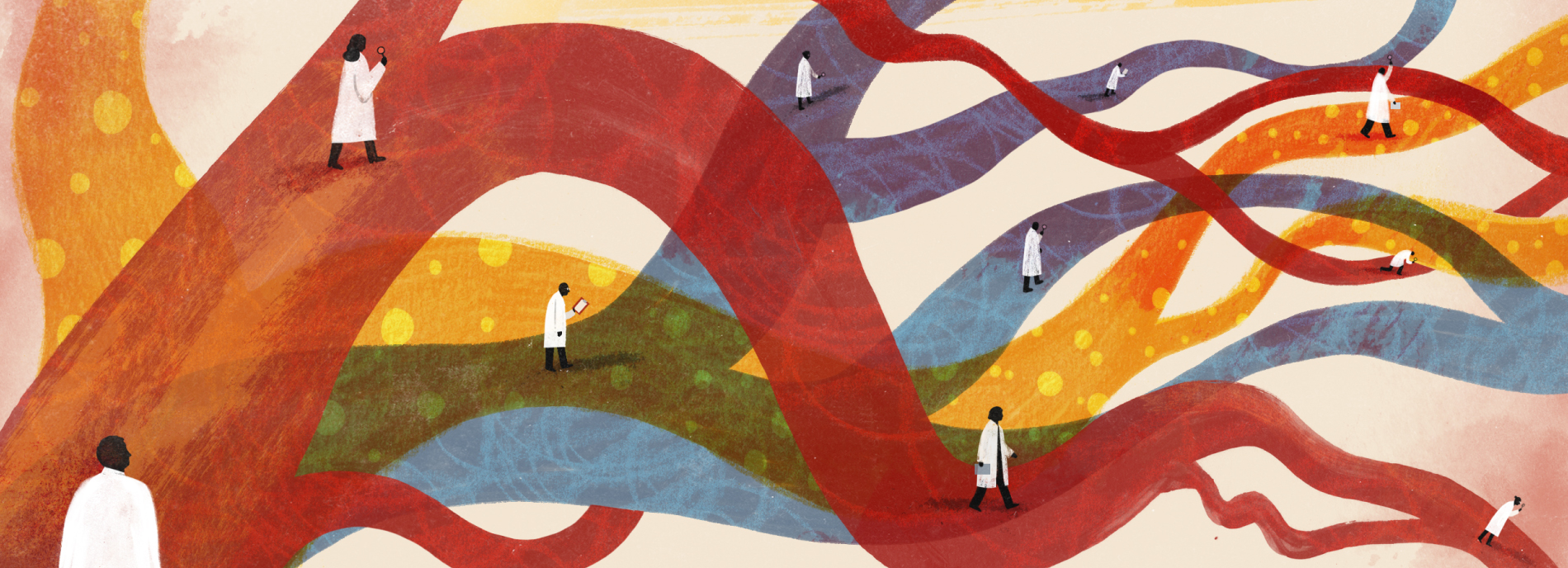
The curious connection between autism and cancer
A surprising number of genes associated with autism also have links to cancer. Does that mean cancer drugs can treat autism?
Questions for Thomas Bourgeron: In search of ‘second hits’
Taking a close look at people who have a mutation in a known autism gene may reveal why these people often have vastly different characteristics.

Questions for Thomas Bourgeron: In search of ‘second hits’
Taking a close look at people who have a mutation in a known autism gene may reveal why these people often have vastly different characteristics.
Web of genes may hold clues for autism treatments
Many of the genes that have emerged as the strongest autism candidates have turned out to regulate the expression of hundreds, if not thousands, of other genes. Within these networks, scientists are homing in on pathways that underlie autism.

Web of genes may hold clues for autism treatments
Many of the genes that have emerged as the strongest autism candidates have turned out to regulate the expression of hundreds, if not thousands, of other genes. Within these networks, scientists are homing in on pathways that underlie autism.
Explore more from The Transmitter
Psilocybin rewires specific mouse cortical networks in lasting ways
Neuronal activity induced by the psychedelic drug strengthens inputs from sensory brain areas and weakens cortico-cortical recurrent loops.
Psilocybin rewires specific mouse cortical networks in lasting ways
Neuronal activity induced by the psychedelic drug strengthens inputs from sensory brain areas and weakens cortico-cortical recurrent loops.
Home makeover helps rats better express themselves: Q&A with Raven Hickson and Peter Kind
The “Habitat”—a complex environment with space for large social groups—expands the behavioral repertoire of rodent models, Hickson and Kind say.
Home makeover helps rats better express themselves: Q&A with Raven Hickson and Peter Kind
The “Habitat”—a complex environment with space for large social groups—expands the behavioral repertoire of rodent models, Hickson and Kind say.
Tatiana Engel explains how to connect high-dimensional neural circuitry with low-dimensional cognitive functions
Neuroscientists have long sought to understand the relationship between structure and function in the vast connectivity and activity patterns in the brain. Engel discusses her modeling approach to discovering the hidden patterns that connect the two.
Tatiana Engel explains how to connect high-dimensional neural circuitry with low-dimensional cognitive functions
Neuroscientists have long sought to understand the relationship between structure and function in the vast connectivity and activity patterns in the brain. Engel discusses her modeling approach to discovering the hidden patterns that connect the two.